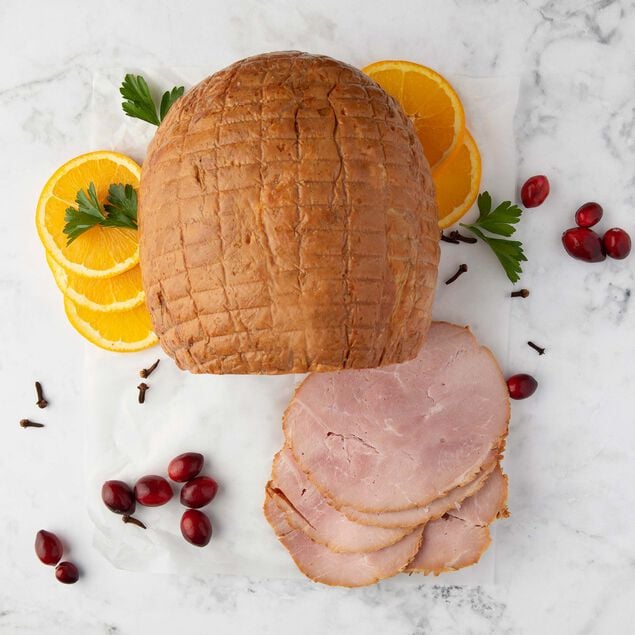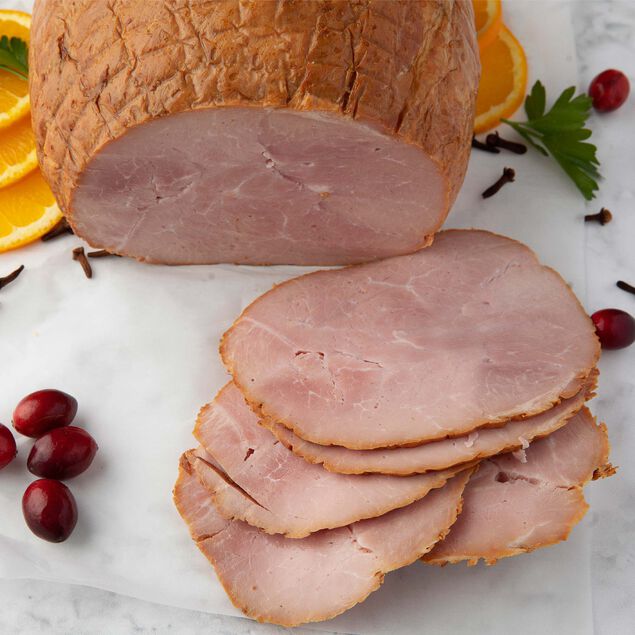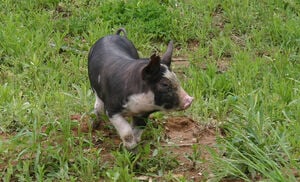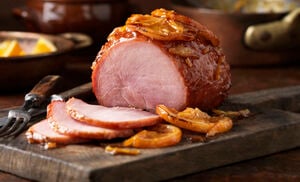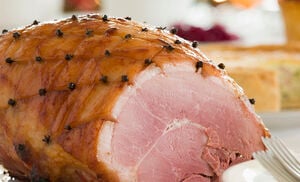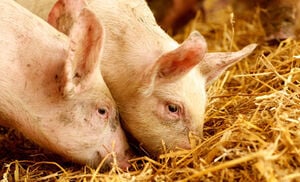Berkshire Pork Boneless Smoked Ham, Whole
-
In Stock
*Servings based on 8oz per person.
- Exceptionally tender, well-marbled style of pork
- Berkshire-breed pigs raised on pasture
- No antibiotics or hormones from birth
- Handcrafted ham, smoked over real applewood
- Uncured - no nitrates, nitrites or phosphates
- No artificial ingredients, colorings or preservatives
- Fully-cooked and ready-to-eat
- Gluten-free
- Product of USA
- For best taste on fresh products, use or freeze within 3-5 days of receipt; for frozen products, use within 1-2 days after thawing
- Subscription Eligible
Since it’s fully cooked, ham can be served cold, at room temperature, or heated, with or without glaze.
To heat, first, bring the ham up to room temperature. We recommend removing it from the fridge at least an hour before you plan on heating it. Preheat the oven to 300 degrees F.
Place the ham on a rack in a heavy-bottomed roasting pan. Pour ¼ to ½ inch of water, or liquid of your choice, into the pan.
Place a sheet of parchment paper over the ham then cover tightly with aluminum foil. Heat in the oven until the internal temperature reaches about 140 degrees (about 10 minutes per pound of ham). An oven-safe probe thermometer works well for this - poke it into the thickest part of the ham. Heating time will vary depending on your oven and size of the ham.
Remove the ham from the oven and allow it to rest for a few minutes, tented with foil. As long as you keep your eye on it, this is a safe way to heat the ham without drying it out.
For added flavor and moisture protection, you can apply a glaze during the last 30 minutes of heating time. Ariane, D'Artagnan's founder, suggests a simple mixture of one part soy sauce to one part honey, but don't be afraid to get creative. A balanced glaze will contain a sweet element like honey, brown sugar, apricot preserves, or pure maple syrup and a savory or acidic element such as mustard, soy sauce, vinegar, or even your favorite bourbon.
Perfect for a special occasion, or just a weekend dinner (think leftovers). Fully cooked, it can be sliced cold for sandwiches or salads, shredded and stirred into grits, or tossed in a jambalaya.
Our mission is to find farmers that share our vision of a more humane and sustainable way of rearing livestock. The cooperative of small family farmers that raises our Berkshire hogs is dedicated to traditional methods, allowing hogs to feed on pasture, with access to water and supplemental grain consisting of corn, soybeans, and rolled oats. No pesticides, animal by-products, or fishmeal are allowed. The majority of the farms are sustainable "circle farms" that raise and grind their own feed for the pigs.
Families of pigs are left together, to forage and frolic outdoors on pasture. The indoor spaces offer at least 15 square feet of space per animal, and sows are never put in gestation crates.
The cooperative is strict about banning the use of antibiotics and hormones on each farm and limiting the number of hogs the farms raise. They seek to add another farmer to the cooperative before they add more pigs to any one farm, making the process more humane for all concerned.



